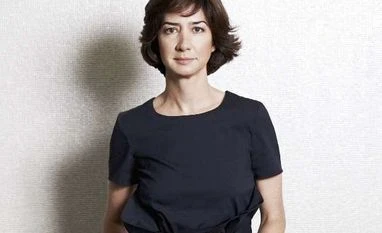Frot-Coutaz, 49. The French chief executive officer (CEO) of the world's second largest television content firm, FremantleMedia (Endemol Shine is the first), is not just stylish. She is full of insights on the tricky question of scale, creativity and how to balance the two, a conundrum that Indian TV content firms continue to grapple with. "Only 30 per cent of ad dollars (in developed markets) go to content, the rest goes to broadcasters. To get a larger share of the pie you (content firms) need to be global," she reckons.
It is a cold Friday morning in London. But the conversation warms up as Frot-Coutaz, in between sips of coffee from a takeaway paper cup, takes me through the economics of formats and why they are critical to scale. The $1-billion FremantleMedia makes more than half its money from formats such as British Idol or Britain's Got Talent. (The other half comes from drama and scripted content.) "We are unique because we rely on formats," says Frot-Coutaz. Besides FremantleMedia, there is Endemol Shine (Big Brother) and ITV Studios (Hell's Kitchen) which create and distribute formats that travel globally.
A format could take two to four years to develop. Failure rate is high. In the US, over 12 months ended September 2014, 10 unscripted prime-time shows (or formats) were launched by five networks. Only one got a second season, points out Frot-Coutaz. But the one format that works more than makes up for the others. Take Me Out, the last successful format FremantleMedia developed, took four years in the making. Rising Star was rolled out in a record six months to 20 countries. But "it tanked. So speed may not be a good thing. If a format fails, it is dead," says she.
"Scripted content (drama) is expensive and takes time. Formats, on the other hand, is about finding the right people; they are not very expensive to develop," says Frot-Coutaz. Networks pay between 5 and 8 per cent of the show's budget as format fee for the intellectual property rights or IP, irrespective of whether or not FremantleMedia produces it. The margins depend on whether "we are in the format business or the format-plus-production business," says Frot-Coutaz.
That sounds good. But much of this only works because FemantleMedia is headquartered in the UK, where it is mandatory for content producers to keep the IP. They can only license it to distributors such as BBC Worldwide or even FremantleMedia. The whole business is predicated on the ability of the creating company to leverage that format across markets. Many small Indian firms, however, do not want the IP and would rather stick to their cost-plus-10 per cent model. So how would she tackle these, especially as she goes about expanding in India where more than 70 per cent of all television content is commissioned and broadcasters own and exploit the IP. "India is a tough market to make money in," says she, echoing something almost every TV content firm, Indian or foreign, says.
Also, drama works better in India. To cover that gap, last August, FremantleMedia formed a joint venture for drama with DJ's Creative Unit - the producers of Banegi Apni Baat and Jassi Jaisi Koi Nahin, among others. Then there is the launch of India's Digital Superstar, a digital-only talent show. That is the other thing besides formats that gets Frot-Coutaz talking.
Last year, FremantleMedia and its mother company, the RTL Group, invested in two large multi-channel networks (MCNs) on YouTube: Broadband TV and Divimove. Earlier in 2013 it signed a deal with StyleHaul, a YouTube network focused on fashion and beauty. Where is the money? "The monetisation (of content on digital) has gone worse. But young people are not watching TV anymore and that is not going to change. So we are investing in the future," says she. The hope is to get lots of audiences across niches, aggregate them and make money from the 55 per cent or so that Google shares with content or content-distribution firms.
Whether in linear television or online, the whole thing is about scale. There we go again.
| EARLY CAREER Frot-Coutaz began her career with The Pearson Group (which owns Financial Times and The Economist among other brands). In 1995, Pearson got into television with Grundy, which eventually morphed through various mergers and acquisitions into FremantleMedia. It is now part of the RTL Group, which in turn is majority owned by the €16.4 billion German media firm, Bertelsmann. Before she took over as global CEO for FremantleMedia, Frot-Coutaz headed the company's North American operations and was the executive producer on some of its biggest American hits - The X Factor and American Idol. |
)